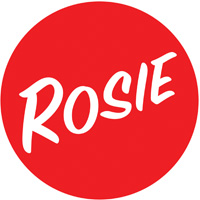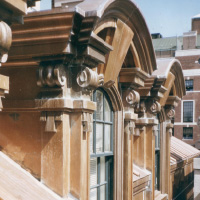
Darla K. Jobkar
As we enter the spring season, it’s a great time to realize the impact Earth Day and the modern green movement has had on the world. How did expertly organized rallies during the revolutionary 1960s and 1970s lead to the creation of laws that benefit us today? For many, Earth Day is but another day on the calendar, but if it wasn’t for its implementation and the dedication of political leaders from America’s past, no one would “go green” nor would there be any hope to correct the atrocities and contamination still plaguing our planet.
By the era of industrialized Europe and America, waste was starting to rapidly ruin our water and air supply. Teddy Roosevelt, a staunch supporter of wildlife conservation, was alarmed by the threats posed to animals and the country’s landscape. Great strides were taken (e.g., the birth of the Sierra Club, the creation of Yosemite National Park, and the wildlife conservation movement) to draw the public’s attention to the situation before World War II; but after the war, attention was trained on securing our nation, not saving the wilderness from exploitation. It wasn’t until Rachel Carson, a Pittsburgh-area native and Chatham University alumna, published Silent Spring in 1962 that the greater public was reminded of how toxic our surroundings had become and what consequences certainly lay ahead if we didn’t heed nature’s warning.
After horrific, but preventable, disasters such as the Donora Fluoride Fog, the fire on the Cuyahoga River, and the Santa Barbara oil spill in 1969, Senator Gaylord Nelson of Wisconsin determined that we needed a “national teach-in” about environmental matters. On April 22, 1970, the nation’s first Earth Day, thousands of students across the U.S. demonstrated for the protection of the environment. They spoke out against freeways, power plants, the polluting of bodies of water, toxic waste, raw sewage dumping, pesticides, and other horrors that were ruining our nation.
The first Earth Day led to monumental improvements in protecting the environment, such as the creation of the EPA, the Clean Air Act, the Clean Water Act, and the Endangered Species Act. In 1990 Earth Day went global.
In Pittsburgh, Earth Day has become “Earth Month and Beyond.”
Pittsburgh’s LEED-certified projects are beacons of sustainable development:
Riverfront Revitalization. LEED (Leadership in Energy and Environmental Design) -certified buildings along the riverfront blend modern design with sustainability, utilizing innovative technologies to minimalize impact while maximizing comfort and efficiency.
Urban Oasis. As you stroll along Smallman Street and Penn Avenue, you’ll encounter LEED-certified mixed-use developments seamlessly integrated into the district’s fabric.
Adaptive Reuse. The Strip District’s and Lawrenceville’s past is evident in its architecture, with former warehouses and factories finding new life as LEED-certified residential and commercial spaces—notably, the 2500 Smallman, Smallman Place, Brewer’s Block, and Refinery residences, as well as Oxford’s 3 Crossings, the David Lawrence Convention Center, and more.
Green Spaces Galore. Parks and green spaces are woven into the city’s landscape. LEED-certified developments prioritize outdoor amenities, such as rooftop gardens and community parks, fostering a connection with nature and promoting a healthier, more sustainable lifestyle.
Committed to building a plastic-free planet for generations to come, 2024’s Earth Day initiative is “Planet vs Plastic,” and Pittsburgh is all in! Recently, the City Council took the historic step of making Pittsburgh the latest municipality to enact a ban on the distribution of single-use plastic bags by retail businesses at checkout or delivery.
The Pittsburgh Earth Day events, scheduled for April 27, offer a unique chance to engage with the community and align yourself with environmentally conscious practices. A full list of the many events planned can be found online at pittsburghearthday.org.
Darla K. Jobkar is a full-time, top-producing realtor with Berkshire Hathaway HomeServices. She has been serving the Greater Pittsburgh area for the past 27 years, and she is a Pittsburgh native and a graduate of the University of Pittsburgh. Darla holds the following real estate designations: Certified Residential Specialist, Accredited Buyer’s Representative, and graduate of the Realtor’s Institute. For more information about the Darla K. Jobkar Real Estate Team, visit her website at DarlaSellsRealEstate.com or the Berkshire website, ThePreferredRealty.com. And follow Darla at facebook.com/StripDistrictPgh and twitter.com/darlajobkar.




